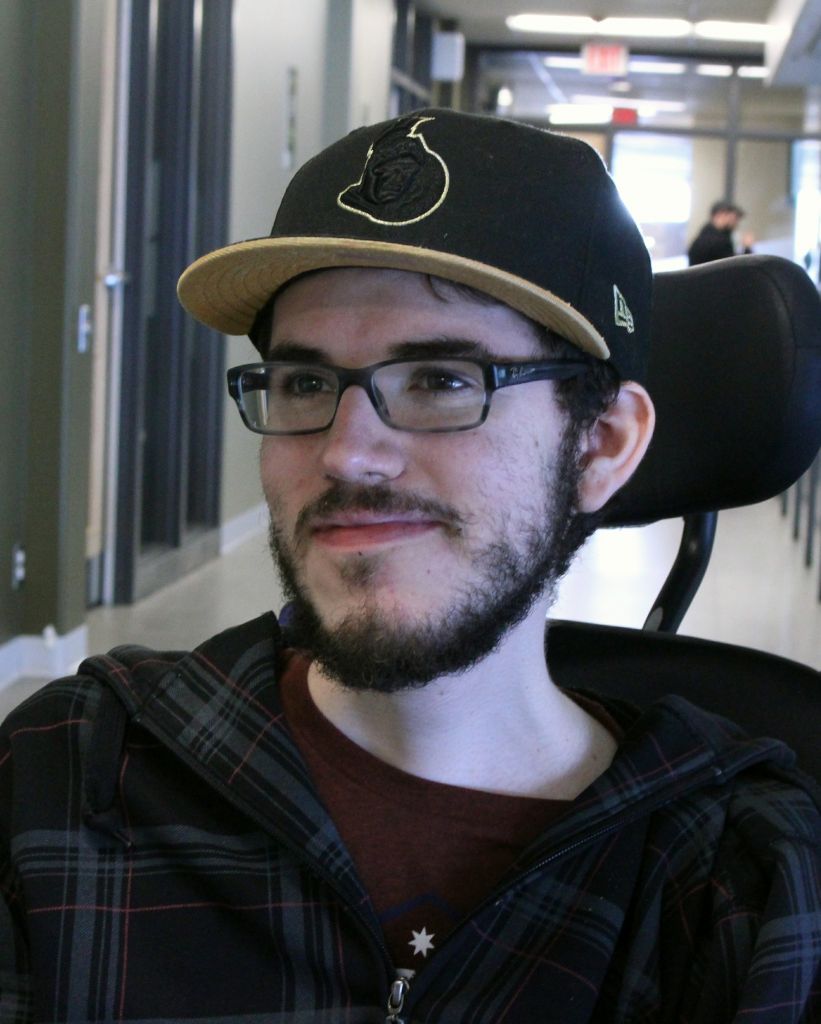Algonquin gets passing grades when it comes to accessibility for disabled students. At least, that’s according to three students who need enhanced mobility around the campus.
The college offers plenty of supports for students with disabilities such as the Centre for Accessible Learning (CAL). It offers physical support for students in various programs, from changing a desk’s height to even switching a classroom’s location for better accessibility.
“It’s pretty good accessibility, a few spots for improvement I think but overall it’s been good,” Jessica Ferencz said, a second-year paralegal student who uses her wheelchair to get around.
Limited improvements suggested included a few more minor adaptations around the campus.
“Those big ramps can sometimes be somewhat difficult to go up especially if I have like a drink or something I’m trying to hold,” Eric Lonz said.
Lonz is in his first year of Business Administration. He has spina bifida, and also uses a wheelchair.
When asked how to fix the ramp problem, Lonz suggested having an easier alternative route so people who can’t do the ramps, could get where they need to go easier.
The two other concerning areas on campus are the door entry buttons and the bathrooms.
“One area I think they should keeping working on is the entry buttons where all you have to do is wave,” said Ferenz. “I personally like those better, I find them cleaner. You don’t have to use your hand to press it so you avoid the germs.”
Chris Pavone agreed.
“I think in general just some of the entrances to doors, the buttons are not consistent throughout the school. So in some buildings, you can’t reach them,” Pavone, a radio broadcast student with Duchenne muscular dystrophy.
Ferencz said her most pressing issue are the bathrooms.
“Between bathrooms that are too small and then soap dispensers that are way too high. For instance, there’s a bathroom in A-building where they have a lower dispenser but it’s not soap it’s hand sanitizer,” Ferencz said.“The bathrooms in B-building are particularly small and dark. I don’t always feel they are the safest for me physically.”
The students also had many positive things to say about the college’s accessibility.
“I like that the college has designated para spots not only one but all over campus. Which is good because Para knows where to and don’t get confused,” Ferencz said.
Pavone even praised the campus for always trying to be as accessible as possible.
“(The college is) making it easier for students with disabilities to get around, even with academics, with having CAL available,” Pavone said.


